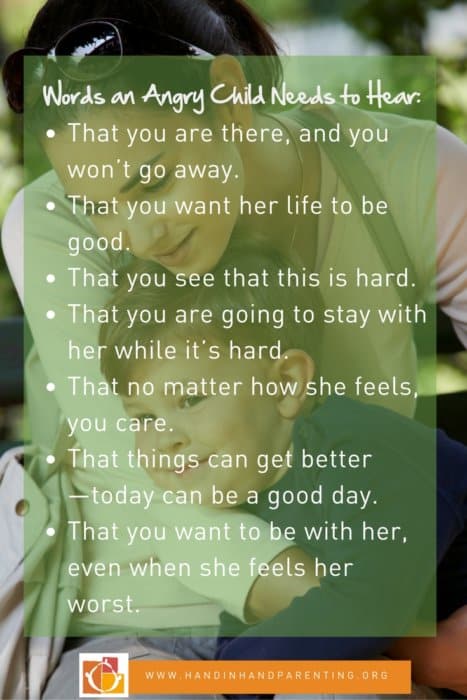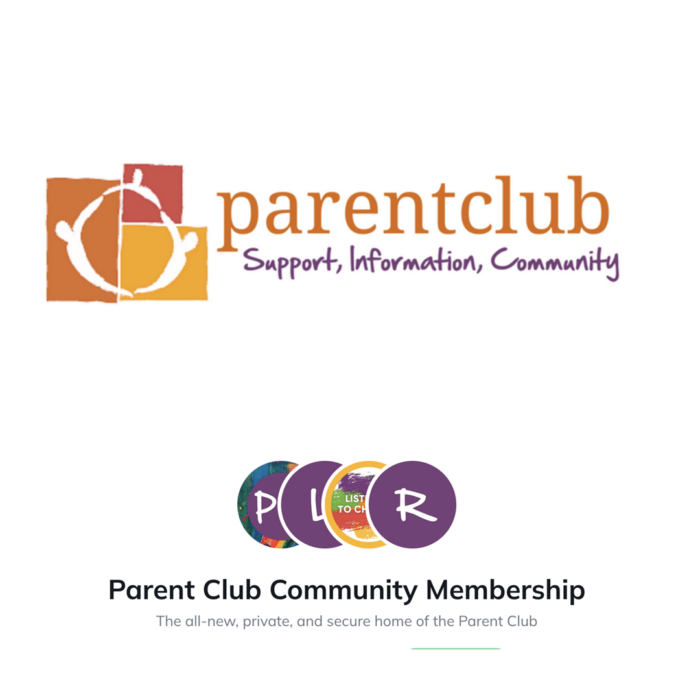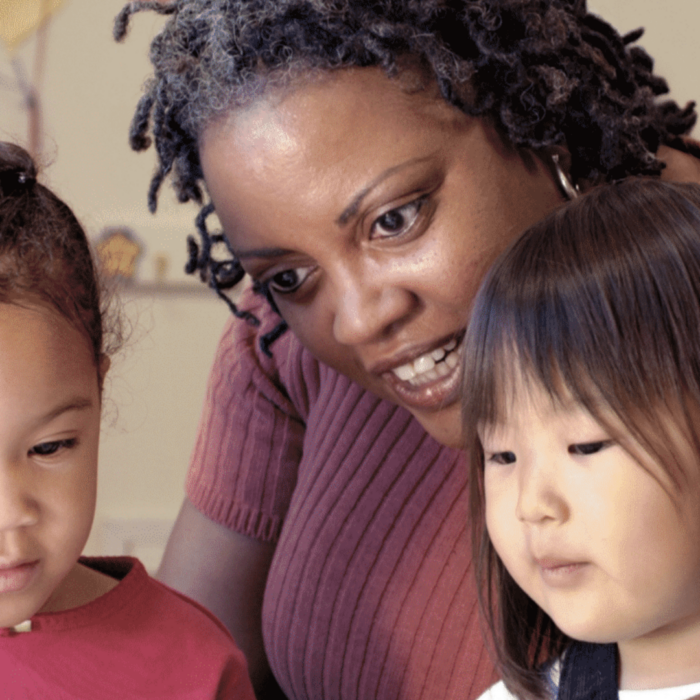Handling “I hate you!”
Almost every parent was once a child who was shouted at by grownups under stress.
Almost all of us were called names and told we were bad at one time or another.
Our parents were stressed, and they targeted us because they had nowhere else to go with their feelings. So when a child says “I hate you,” it’s hard to keep our heads.
What has happened to them happens to us: The light of reason goes out and what we do next is often determined by what we saw our parents do.
Act Childish Yourself
You’re ahead of the curve, here, because you’re able to see that there are various alternatives, and you’ve reached out for help. That’s better than just blasting back at your child, which only creates a scary situation on top of the situation that sent her mind reeling in the first place.
So what’s an answer?
Kids are great at letting us know how they feel, now it’s your turn. The way to give yourself a chance at being your child’s emotional anchor during their next outburst is to find a Listening Partner. Set a date to exchange listening and when it’s your turn do what your child does.
Vent. Lose it. tantrum.
Tell your listener how you feel, what happens that drives you nuts, and what feelings surge through you when your child begins a tirade. Tell it all. Let your own feelings spill out. Allow yourself to cry hard and laugh hard whenever possible.
It’s the crying, the laughter and the tantrums that we have that move emotional debris out of our way so we can think under fire. If your listener is a good one, he or she won’t tell you what to do. They’ll understand that you’re giving your feelings a time and a place to bubble up, get heard, and get out of the way.
 What An Angry Child Needs
What An Angry Child Needs
With some of this help lined up and those feelings set free, you’ll find it easier to think what to say when your child lashes out or says “I hate you.”
Children feel hatred as a result of feeling frightened and alone.
In early childhood, there’s no way to understand a lot of what is going on, and little ones have minimal control of their lives. When we inevitably can’t read their minds, and they feel frightened, they try to offload the feelings. If we, thinking it is the nurturing thing to do, routinely stop them from crying big feelings can fester.
This is, very generally, how children become angry with their parents.
Staylistening counters this kind of hurt.
Your child will become less angry, more playful, and closer to you each time you hang in with her through a tirade. It might take many upsets to drain the feeling that keeps cropping up, but your attention and offer of connection is very powerful.
She desperately wants to feel close to you, but she will have to fight you hard and show you how isolated she became, long ago. Stay close, and you’ll see these deep hurts unravel.
If you send her to her room, take away her privileges, give her a lecture about how upset she makes you, or tell her your feelings are hurt, she could begrudgingly return to a bumpy version of her normal state.
But those big feelings remain in storage and will certainly pop out again and again.
Instead, let her get those feelings out in just the same way you did with your listener.
A child who is feeling hatred needs to know these things:
- That you are there, and you won’t go away.
- That you want her life to be good.
- That you see that this is hard.
- That you are going to stay with her while it’s hard.
- That no matter how she feels, you care.
- That things can get better—today can be a good day.
- That you want to be with her, even when she feels her worst.
Choose Your Best Moment
Listening heals the hurt and you’ll see results but Staylistening is not for the faint of heart.
It takes work to shed our own feelings of hurt so we can keep reaching for an angry child. You probably won’t have the presence of mind to Staylisten every time your child gets upset. That’s ok.
Research shows that the one thing you don’t want to do is to be indifferent to a child’s feelings. That sends a strong “I don’t care” message that can be devastating. It’s vital that you don’t ignore a child’s passionate feelings so Staylisten whenever you have the slack, but give yourself a Time Out if you begin to lose your emotional bearings.
In the times that you can listen and stay until the storm is over your child will feel deep relief.
You’ll see her best self again.
From the Hand in Hand Toolbox:
Find out more about Staylistening in this post Listen Launch Post: Staylistening; How Does Crying Help You and Your Child? and discover how to transform your parenting with Hand in Hand’s Five Listening Tools
If you need help with an aggressive child get our e-book Reaching For Your Angry Child
Get Hand in Hand’s newsletter and get monthly updates, tips and advice on how to become a calmer, more confident parent




